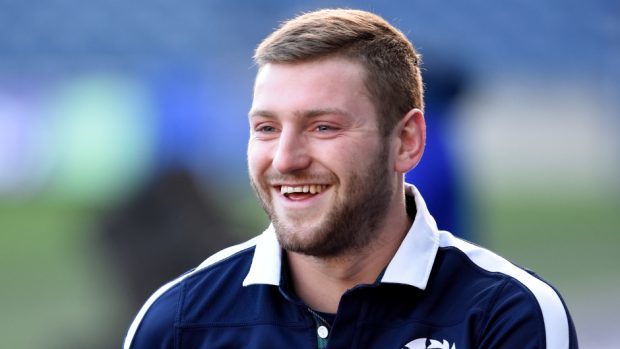Something kept sticking in my mind while I was watching the Champions Cup final at the weekend between Exeter Chiefs and Racing 92.
There was the mercurial and occasionally barnstorming brilliance of Finn Russell in the No 10 berth for the French club, with his eye for an opening, ability to spark havoc in the opposition’s defence and capacity to make things happen.
But the trouble was they weren’t always good things for himself or his team, who eventually slipped to a nerve-shredding 31-27 defeat, despite all the colour, charisma and panache which they brought to a coruscating contest.
His side seemed to be gaining momentum as they rallied from falling behind in the opening stages and Russell’s smart cut-out pass opened the door for Juan Imhoff to reduce the deficit to a mere two points.
But then, just when they needed to be precise and clinical, the Scotland stand-off despatched a looping pass just outside his own 22. It was chancy at best, reckless at worst and there was a groan from this viewer when the ball wsa plucked out of the air by Jack Nowell and he released his England colleague Henry Slade for the try.
Didn’t this all seem horribly familiar? Yes, it did. Because these were exactly the sort of incidents which happened regularly when Gregor Townsend – another genie in the bottle at his best – was strutting his stuff for his country.
In his pomp, the now Scotland coach was a joy to behold, whether producing the fabled “Toony flip” as the catalyst for Gavin Hastings to run under the posts in Paris in 1995, or his heroics against Les Bleus when Scotland triumphed in the last-ever Five Nations Championship in 1999.
But he also endured other afternoons where too many passes were intercepted or cross kicks landed in the wrong place, which piled pressure on his teammates and, in several instances, gifted victory to rivals.
It’s obviously good news that Russell has returned to the Scotland fold, following his departure from the squad earlier this year after the breakdown of his relationship with Townsend – although subsequent events and the impact of a global pandemic have made that spat between two adults seem even more petty and ridiculous.
Yet the reality is that while the Racing star is a genuinely world-class performer – and the Scots don’t have an abundance of such serried talents at their disposal – he will never be Mr Consistency in the thick of battle.
That’s why his coaches have to accept that his high-risk champagne rugby can be a blessing or a curse. There’s no middle ground with the Flying Finn.
And one wonders how much that will appeal to Warren Gatland, who was one of the small sprinkling of spectators in attendance at Saturday’s behind-closed-doors final.
In the past, Gatland, who is the British and Irish Lions coach for their scheduled trip to South Africa next summer, has been pretty scathing about what he perceives as a lack of leadership and streetwisdom in the Scottish ranks.
Whether he’s right or wrong is immaterial, given that he will be calling the shots and is one of life’s Roundheads, inclined to favour pragmatic percentages over party tricks.
His record against Scotland, while he was in charge of Wales, speaks for itself. He trampled all over them year after year and, too often, exposed the soft underbelly among the SRU’s finest.
This isn’t to denigrate Russell, but he is a cavalier character, somebody who loves spontaneity and thinking and acting on his feet. From Gatland’s perspective, does he reckon these will be the qualities which will help beat the world champions in their own backyard?
I was in the Republic in 1997 when Jim Telfer and Ian McGeechan orchestrated a memorable series win over the Springboks. Townsend was at fly-half for their victories in the first two matches in Cape Town and Durban and he managed to adapt his game to being solid rather than spectacular.
It helped that he was surrounded by tough-as-teak customers in the mould of Scott Gibbs, Alan Tait and Martin Johnson and his ferocious group of warriors in the pack. Townsend was the luxury item in the car showroom and he shone.
But that was more than 20 years ago, when there were plenty of Scots in a squad which was coached by two of their most illustrious sons. The number has diminished ever since.
Ultimately, Russell might have to tone down the pyrotechnics and avoid the glaring errors when and if the Six Nations Championship gets underway.
He could probably do without wearing any more pink bow-ties which the Racing personnel sported at Ashton Gate.
Yes, he is a class act. But Gatland wants more than that.
